


Exploring old magazines can be a lot of fun. I selected one short story, novelette or novella from each issue of Analog from 1976.

January 1976
Herbie Brennan – Angel
January 1976 saw the start of a 4-part serialisation in Analog of Frank Herbert’s Children of Dune. An obvious choice to read in each issue perhaps, but I have already read the novel, and the idea here was to read a less well-known complete story in each issue. So, to kick things off I selected Herbie Brennan’s short story, Angel. This was a passable story only but benefited from being crisply written and engaging. The messages that a religious cult leader obtain from Venus, from a certain Jesus Christ, are not what they seem. A prolific (and successful) Irish author, Herbie Brennan writes well, but this is not a classic.

May 1976
Gordon Eklund – The Prince in Metropolis
This was a fairly good story (middling, perhaps). It tells how an amputee was aided to become a popular and significant (though flawed) politician through technology. Told through flashbacks at the end of the man’s life, I thought it was quite well structured. Eklund is another author I’m not hugely familiar with, but he won the Nebula for Best Novelette for his 1974 short story If the Stars Are Gods (co-written with Gregory Benford). He may be most famous for writing some of the better known, early, Star Trek novels.
June 1976
Christopher Anvil – Brains
Isn’t Everything
A prolific SF author from the late
1950’s through to about 1990, Anvil will be well known to many I suspect,
though I’ll admit I’ve only read a few short stories by him. This was an
amusing story, well told, and I enjoyed it.
I guess it followed a well-worn SF trope by the end, but it was nicely
set up. Strange, friendly and tentacular
aliens offer the people of each major nation on Earth pills for one great
advantage, be it perfect health, or better brain power. But is it an alien trick and what is their
motivation?
July 1976
Joe Haldeman – Tricentennial
This was awarded the Hugo Award for
Best Short Story in 1977. This is a cracking short story, with more than a
whiff of Tau Zero, about it. It’s more sombre and serious than some of
the stories I’ve read in this 1976 exploration and provided both genuine a
sense of wonder (so rare) and had a greater ‘weight’ to it than many stories.
The end is terrific, and you don’t really see it developing as it does.
August 1976
Bud Sparhawk – The Tomkins Battery
Case
In August, Analog started
serialising another famous novel, Shadrach in the Furnace by Silverberg,
but again I gave the well-known serial a swerve and selected this short story
by Bud Sparhawk. Unfortunately, this is
a very light bit of fluff really.
Outside of the Silverberg, I’m not sure this issue had much of quality
to offer though. It is a humorous
piece, where a character is addicted, but not to drugs… it read as though it was from another era – it’s all rather 1950’s.

September 1976
Arsen Darnay – Aspic’s Mystery
I liked this story – I struggled to find a story that looked very appealing in this issue, not having heard of the authors (and not being inspired by the cover story), but this was a decent and serious tale, describing how the monitoring and capture of radioactive waste following a holocaust war is carried out by a religious sect. The monks have been brainwashed into following tenets that manage waste disposal and management for centuries. They have lost understanding of why they do what they do, and what radioactivity means, but we see what happened through our understanding of old press clippings on monk archivist finds. Its all quite neat and well done – a solid story.
October 1976
Joan D. Vinge – Media Man
For the astute and/or gender-conscious
among you, you may notice that this was the first occasion I read a story by a
woman in this reading exploration. I wanted to include work by women in my
reading before this time, but until September there were zero stories by
women in Analog in 1976! In September, there was a story by Vonda McIntyre,
which I thought I’d give a go, but it was not at all to my taste, so I
switched and read the Darsany, discussed above.
This then is the first female offering I read. It is excellent, and was nominated for
the Hugo award for Best Novella (its quite long). It tells a great story of the rescue of someone
from a cold planet in a far solar system and high intrigue, and murder,
thereafter – and it’s set in a nice backdrop (the Heaven system, which
Vinge used as the location of some of her other stories). Vinge writes well, in
an uncluttered direct style I like (the polar opposite of McIntyre) and I’ll
look out for more Heaven stories in future.
November 1976
Spider Robinson – By Any Other Name
This was the Hugo Award winner for
Best Novella in 1977. It’s a good story, with (I felt) quite a few parallels
with Wyndham’s Day of the Triffids – i.e. the conflation of both a human
disaster leading to huge loss of life, couple with a new threat. In this case
the human disaster is based on changes to our sense of smell, and the new
threat comes not from triffids but from spirit creatures called Muskies.
Set in this dystopian future, largely in a now-empty New York city, it’s a very
satisfying tale, with a twist at the end, and good crisp pacing. I didn’t
entirely approve of some of the ‘science’ in it as it wasn’t all that
believable, but if you withhold your disbelief, it’s quite a powerful piece. The title is I expect a reference to
Shakespeare’s Romeo and Juliet in which Juliet says, What's in a
name? That which we call a rose, by any other name would smell as sweet.
December 1976
P.J. Plauger – The Con Artist
Fascinating
tale, and with writing that reminds me of Cordwainer Smith (the protagonist
shrugged Italian, then later on shrugs British; and “Lightning was playing
down near December cap… Marianne must be doing the weather this month”; little
inventive details that derail and expand the sense of difference to our normal).
P.J. Plauger seems an interesting figure – he had considerable success with his
previous story in the same series (Child of All Ages was nominated for
the Hugo, Nebula and Locus awards in 1976), he won the John W. Campbell
Award for Best New Writer in 1975 and he has a PhD in nuclear physics. This
short story is great – concerning immortals visiting Earth and threatening the
human hearth. Recommended.